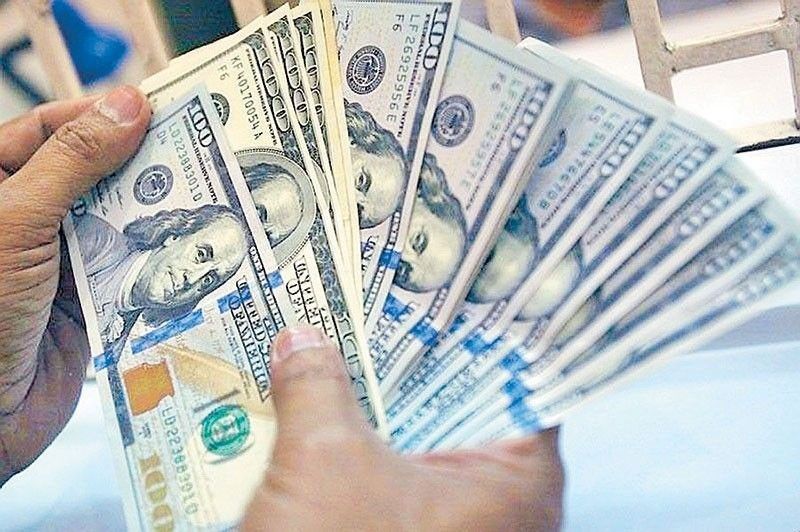Foreign debt jumps to $130.2 billion in June

MANILA, Philippines — The country’s external debt hit another all-time high of $130.18 billion as of end-June, inching up by 1.2 percent from $128.69 billion in end-March as both the national government and the private sector borrowed more from offshore creditors.
Data released by the Bangko Sentral ng Pilipinas (BSP) showed that the increase in the country’s debt level during the second quarter was driven by the total net availments of $1.5 billion.
Public sector external debt grew by 1.2 percent to $79.83 billion in the second quarter from $78.9 billion in the first quarter, with its share to total debt at 61.3 percent.
The $922.95-million increase in public sector debt was mainly driven by net availments of $1.75 billion as the national government borrowed to increase funding for its infrastructure projects and social services programs, the BSP said.
But this was partially offset by the negative $635.28 million foreign exchange revaluation of borrowings denominated in other currencies, net disposition by non-residents of debt securities amounting to $159.58 million and prior periods’ adjustments of $29.58 million.
Around 91.7 percent of public sector obligations are attributed to the national government, while the remaining 8.3 percent pertained to credit of government-owned and controlled corporations, government financial institutions and the BSP.
Meanwhile, the private sector’s foreign borrowings rose by 1.1 percent to $50.36 billion in the second quarter from $49.79 billion a quarter prior, with its share to overall debt at 38.7 percent.
The $567.15-million rise in private sector debt was due to prior periods’ adjustments of $522.86 million and the net acquisition by non-residents from residents of corporate debt securities amounting to $398.39 million.
The increase was tempered by the $252.73 million in net repayments and $101.37 million negative foreign exchange revaluation of borrowings denominated in other currencies.
Year-on-year, the BSP reported a 10.4-percent increase in the external debt level from $117.92 billion in the comparable year-ago period.
The $12.26-billion increase was mainly driven by net availments of $10.36 billion, of which $5.83 billion were credit by private sector entities, largely by banks for general corporate expenditures and liquidity purposes.
“The net acquisition of Philippine debt securities by non-residents of $2.04 billion and prior years’ adjustments of $1.22 billion further contributed to the increase in debt stock,” the BSP said.
However, the negative revaluation of borrowings denominated in other currencies of $1.36 billion mitigated the rise in the debt level over the 12-month period.
The maturity profile of the country’s external debt remained predominantly medium- and long-term in nature. Outstanding borrowings stood at $102.79 billion with share to total at 79 percent, while short-term accounts comprised $27.39 billion or the 21-percent balance.
Major creditor countries include Japan ($14.25 billion), followed by the Netherlands ($4.31 billion) and the United Kingdom ($4.17 billion).
Borrowings from multilateral lending institutions and bilateral creditors have the largest share of 38.5 percent, followed by loans in the form of bonds or notes with a 33.3-percent share and obligations to foreign banks and other financial institutions with 22.4 percent.
The remaining 5.8 percent came from other creditors such as suppliers and exporters.
In terms of currency mix, the country’s debt stock remained largely denominated in dollars (77 percent) and Japanese yen (7.7 percent). The rest (15.3 percent) pertained to 17 other currencies.
The national government borrows heavily from foreign and domestic creditors to finance the country’s budget deficit as it spends more than what it actually earns.
- Latest
- Trending
































